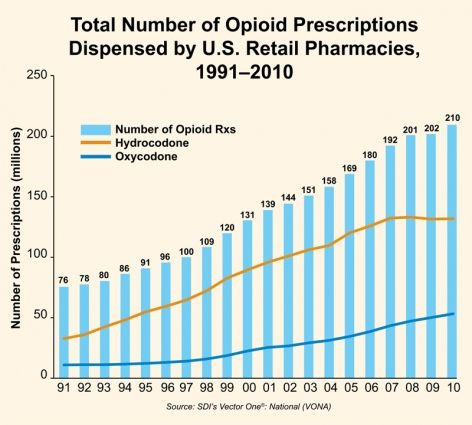Listening To Music Before, During, After Surgery Proven To Reduce Need For Pain Pills: Study

It is estimated 2.1 million people in the United States are abusing pain pills, commonly prescribed to patients after surgery. What if a simple, inexpensive fix could help prevent patients from falling down that rabbit hole of addiction? Listening to music before, during, and after surgery reduces pain, anxiety, and most importantly the need for painkillers, say researchers from Queen Mary University of London.
"Soothing music should be used," Dr. Liza Ball, co-author of the study and researcher at the Center for Primary Care and Public Health, told Medical Daily in an email. She further explained that the team had examined and compared many musical styles, but "we did not find a difference" in terms of the results.
In 1987, nearly 25.7 million inpatient surgeries were performed in the U.S., while in 2010, the number of surgeries totaled 51.4 million, as reported by the Centers for Disease Control and Prevention. On trend with this spike in surgeries, the total number of prescriptions for opioid pain relievers, including hydrocodone (Vicodin) and oxycodone (Percocet), has skyrocketed over the past 25 years: from around 76 million in 1991 to nearly 207 million in 2013.

For the new study, the researchers analyzed results from 73 separately published trials, which included nearly 7,000 adult patient participants. The team looked at the influence and impact of music on postoperative recovery. The study participants had undergone a variety of surgical procedures, with or without anaesthesia, to different parts of the body. To weed out the possibility of hearing impairments, the researchers excluded any studies that focused on operations involving the central nervous system, the head, or the neck. Choice of music, timing, and duration varied across the chosen studies, which in some cases compared patient populations using headphones with music to patients using headphones without music and patients using headphones with white noise.
Having gathered the data, the researchers performed an extensive analysis. What did they discover?
Music reduced postoperative pain, anxiety, and use of painkillers, the results indicated, while increasing overall patient satisfaction. One key variable, though, remained unaffected; whether or not they listened to music, the length of patients' time in the hospital remained the same. The choice of music and timing of its delivery made little difference to the results, the researchers say. Even more, music was effective even when patients were under general anesthetic.
The next step, the research team notes, is to disseminate this information to hospital patients. Ideally, when preparing for surgery, nurse, hospital staff, or doctors will instruct their patients to bring their phones or iPods with them to the hospital so that they can listen to music before, during, and after any procedure.
Source: Hole J, Hirsch M, Ball E, Meads C. Music as an aid for postoperative recovery in adults: a systematic review and meta-analysis. The Lancet. 2015.



























